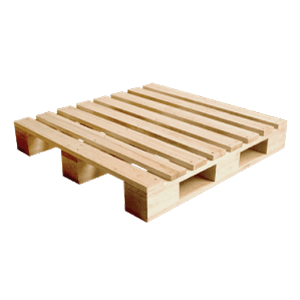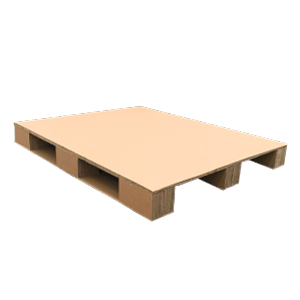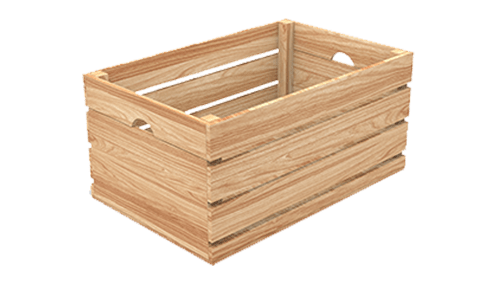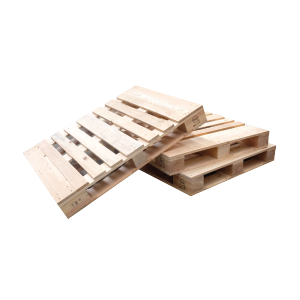The export wood pallet price in 2025 remains a key concern for factories, warehouses, and exporters across Indonesia. As more businesses send products to overseas markets, they need reliable and certified pallets that meet international rules.
A strong wooden pallet not only supports heavy cargo but also keeps shipments safe, organized, and accepted by customs worldwide. Let’s explore real market prices, cost factors, and why PT. Bumi Mandiri Resources (BMR) stands out as Indonesia’s trusted supplier for export-grade wooden pallets.
Why Exporters Still Choose Wooden Pallets
Wooden pallets dominate global shipping because they offer a perfect mix of strength, safety, and low cost. According to Allied Market Research (2024), wood pallets make up more than 85% of all pallets used in international trade. They can handle heavy loads, stay stable during container movement, and work with forklifts and cranes easily.
For exporters, the most important reason is ISPM-15 certification — a global rule that ensures the wood has been heat-treated or fumigated to remove pests and fungi. Without this certification, shipments can be stopped, rejected, or even destroyed at destination ports. That’s why exporters across Karawang, Cikarang, Bandung, and Surabaya prefer using BMR’s certified pallets, which already carry the IPPC mark recognized in more than 180 countries.
Real 2025 Export Wood Pallet Prices
In 2025, the average export wood pallet price in Indonesia ranges between Rp230,000 and Rp320,000 per unit, depending on the design, size, and treatment. Pallets for light-duty exports, such as food or packaging goods, start around Rp230,000, while heavy-duty hardwood pallets for machinery and automotive parts reach about Rp300,000–Rp320,000.
BMR’s standard 1100×1100 mm ISPM-15 pallet sits in the middle range — strong enough for heavy loads, yet light enough for efficient container use. Prices stay stable through 2025 since Indonesia’s timber supply remains consistent, thanks to renewable plantation sources.
When compared to plastic pallets that cost Rp500,000–Rp800,000, wood remains much more economical. Exporters sending goods one-way to international clients find wooden pallets ideal because they meet certification rules without wasting high-cost materials.
Why the Price Is So Worth
Paying a little more for certified export pallets saves much more in the long run. Customs rejection at ports like Tokyo, Rotterdam, or Los Angeles can cause losses far higher than pallet costs. BMR’s certified pallets prevent these issues by complying with ISPM-15 and international quarantine regulations.
Each pallet goes through a kiln-drying and heat-treatment process to bring moisture levels below 20%, ensuring the wood stays clean, dry, and safe for long journeys. This process makes the pallets lighter and stronger, which helps reduce shipping weight and keeps goods stable in containers.
How Certified Pallets Improve Export Efficiency
Strong, uniform pallets make container loading much faster. A 40-foot container can hold about 20 to 22 pallets, depending on the layout and product size. By using the same dimensions, exporters reduce wasted space and make forklift work smoother.
Factories that switched to BMR pallets reported up to 25% faster loading times and fewer damaged goods during shipment. They also save labor hours since forklifts can lift from any side using BMR’s four-way entry design. Over time, these operational gains add up to huge savings for exporters handling thousands of containers a year.
Sustainable and Eco-Friendly Materials
Beyond cost and strength, sustainability has become a major reason companies prefer wood pallets. Around 95% of BMR’s wood comes from legal and renewable sources across Java. After use, pallets can be repaired, reused, or recycled into biomass fuel or wood chips.
According to the Ministry of Environment (KLHK, 2024), recycling wood pallets reduces landfill waste by more than 120,000 tons per year in Indonesia. Every pallet from BMR supports this green initiative, helping exporters meet global sustainability targets while maintaining efficiency.
BMR also applies a “Reuse-Repair-Recycle” policy, where clients can return damaged pallets for refurbishment instead of disposal. This approach saves money and supports eco-friendly logistics practices.
Real Experience from BMR Clients
One electronics exporter in Cikarang reported saving Rp300 million per year after switching from plastic pallets to BMR’s certified wooden pallets. Another heavy-equipment manufacturer in Karawang reduced loading time per container by 40 minutes after standardizing pallet dimensions.
Such results come from simple changes — choosing the right pallet type, matching it with the container size, and ensuring it meets international rules. BMR helps clients plan all of this through consultation and layout optimization before production.
Maintenance for Long-Term Value
Proper handling keeps pallets in top shape for years. Exporters usually store pallets in a covered, dry area away from soil contact. Regular inspection before loading helps spot cracks or exposed nails that might harm packaging.
Heat-treated pallets should be re-treated every six months if stored long-term. BMR partners with Fumindo Mandiri Sejahtera, a licensed fumigation provider, to maintain certification and cleanliness for export clients. With good care, a wooden pallet can last three to five years, even with heavy warehouse rotation.
Why PT. Bumi Mandiri Resources Leads the Export Pallet Market
PT. Bumi Mandiri Resources (BMR) is one of Indonesia’s most trusted suppliers for export-grade wood pallets. The company operates modern production facilities in Karawang and Sidoarjo, capable of producing more than 80,000 pallets per month.
Each pallet undergoes load testing, moisture control, and ISPM-15 inspection before shipment. BMR also offers custom designs to match clients’ export products, from food and beverages to automotive components. Many of Indonesia’s leading exporters already rely on BMR because it delivers not just pallets, but full compliance and reliable performance.
Beyond quality, BMR focuses on service speed. Orders within West Java industrial areas usually ship within a few days, ensuring that factories never face delays in production or export schedules.
The 2025 Market Outlook
Experts predict a steady increase in export demand throughout 2025, especially for manufacturing and e-commerce goods. As this growth continues, the need for certified wooden pallets will also rise. Prices may climb slightly by 3–5% due to transport and labor costs, but Indonesia’s strong domestic wood supply will keep them affordable compared to global averages.
This means businesses that secure long-term contracts with reliable suppliers like BMR will enjoy stable prices and guaranteed availability even during export surges.
Conclusion
The export wood pallet price in 2025 proves that certified wooden pallets remain the smartest investment for global trade. They’re strong, sustainable, affordable, and fully compliant with international standards. Every shipment packed on a BMR pallet travels safely through customs and reaches its destination without delay.
By choosing PT. Bumi Mandiri Resources, exporters gain more than a supplier — they gain a logistics partner focused on safety, quality, and sustainability. Contact BMR today to get an updated price list and discover how the right pallet can make your export operations faster, cleaner, and more profitable.
E-mail: info@bmr-pallets.com
WA: +62 8119-787-911










